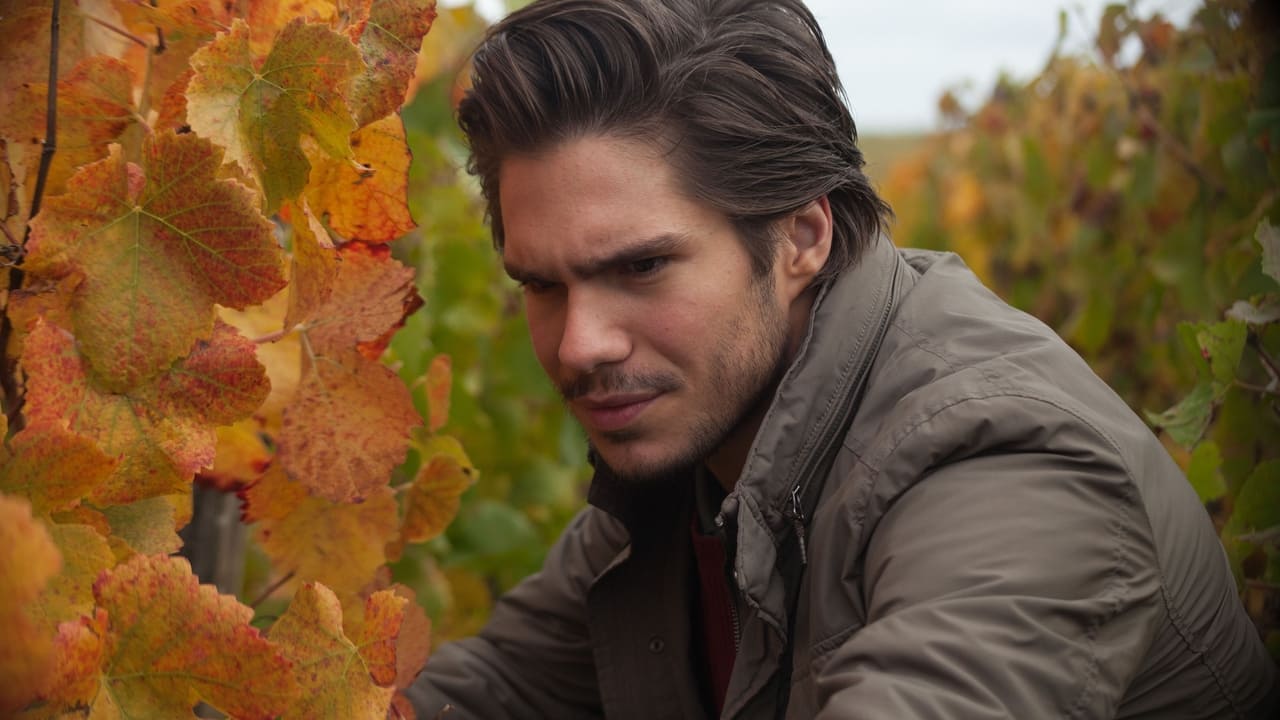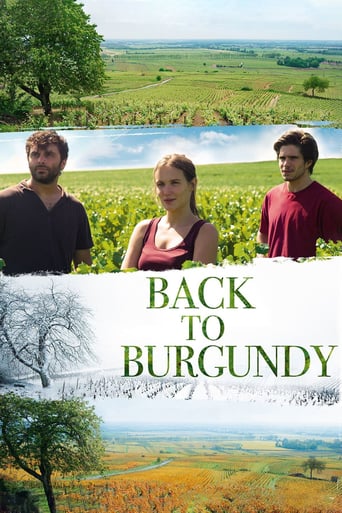

The beginning of the movie is particularly derivative: the would be black sheep of the family back in his native land after years around the world, this is as old as the hills , like the prodigal son of our Sunday school ;of course he thought his dad did not like him (which of course is not true),of course his marriage in Australia runs into difficulties ...cliché to end all the clichés...Fortunately the movie has other qualities: the cinematography is splendid indeed ,filming on location in the Burgundy vineyard is awesome ;the grape harvest (with the exception of the scene when the harvesters fight with bunches of grapes ,a harvester would never do such a thing,and I know what I'm talking about!)atmosphere is well recreated ,particularly the feast which celebrates the end of the picking.Besides ,the father who bequeaths his earth in jointly-held ownership to his children ,it's quite convincing : in Zola's "La Terre" , the father ,who was not still dead when he retired,did not go about it in a different way.In fact,Juliette and Jeremie are much more endearing characters than their eldest sibling.Juliette is a modern woman, we perceive her firm independence of men ,when she leads her harvesters through her vineyard.Jérémie ,a family man ,is still under his father-in-law's thumb, a he-man who 's got plans for him . Juliette is not going to let herself be pushed around by this in-law who has his eye on her valuable property ;but it will take time before her brother rebels ,although stammering out his angry replies.On the other hand ,when Jean 's wife and their adorable child appear ,all become so predictable that,without his siblings , the screenplay would lose much of its interest.Beautiful pictures, but an uneven screenplay.
... View MorePeople who love wine will have a lot of reasons to like Cédric Klapisch' film 'Ce qui nou lie' (the English title is 'Back to Burgundy'). The landscape of Burgundy beautifully filmed during all the seasons of the year is the setting of a story whose heroes are people who not only make a living from wine, but wine is all they know and want to do, a tradition that they inherited for many generations, on properties that pass from grandfather to father to son and daughters. It's beautifully filmed, with a lot of technical and craft details, described with respect and dedication. I love wine, so I liked very much this facet of the film. Yet, 'Ce qui nou lie' is more than this.Director Cédric Klapisch demonstrated in previous movies like (especially) L'auberge espagnole or Chinese Puzzle that he knows and likes to build family and relationship melodramas, with credible characters that he makes us care about. This is what he also tries to do here, but in this case he seems to gather too many intrigues that do not fit that well one with the other: we have an over-the-years brothers reunion, a father-son relation that keeps being strained over the years and even after the death of the father, a land inheritance under pressure because of the decisions of the late father and taxes and economic pressure, generation conflicts and kids at the other side of the planet, etc. Some of these are better described, other are solved by sudden and less credible script writing tricks, my overall feeling was that none was that much important and you end asking yourself what was more important - the stories or the beautiful background and the style of life of the characters.Fortunately, the film is helped by splendid acting. The roles of the three siblings are trusted to three actors I know less or not at all, Pio Marmaï, Ana Girardot, and François Civil and all three do a fine job. A few of the camera moves are really memorable (the departing silhouettes of the three brothers right after a flashback that showed them hugging together with their mother many years before, the bed scene with the elder brother and his girlfriend separated and brought together at the same time by their 5 years kid). Overall it's a satisfying film, with charming moments, a little too long, but there are more reasons than the love of wine to go and see it.
... View MoreBest film I've seen (#5) of the Sydney film festival (so far, 7 to go). It's French, it's charming, but it is never a cliché. That's difficult because the world in general has so many preconceptions about France. It's about wine, and Thank You, I learnt a lot. The cinema was full, lots of French people and lots of French speakers, including those, comme moi, who vaguely imagine we speak French. The French wine board missed an opportunity, they could have had a testing in the foyer, and it would have been a sucès folle.It's a film about family, and how you cannot really know them, no matter how you think you do. It's also about tax and travel, and for all the French people out there, please note: There are NO inheritance taxes in Australia. And it is easy to work for yourself. No permission or paperwork required, just sweat.That is probably why Jean is growing wine in Australia. He is torn between his life here and his life in Burgundy, and a satisfactory answer is hard to find. It is a chord which every Australian understands (and why this film should get wide release here, please) we all go back to Burgundy or Thessiloniki or Liverpool to find what we left, and for many of us, it turns out to be just not what we remembered for good or bad. The way this is shown, so lightly and, very delicately, is one of several reasons this film is special. The ending is particularly good.
... View MoreIt is an excellent movie that made me experience a lot of feelings. Definitely, needs to be watched by people. All the interactions between the main characters make the public feel really involved with the movie. The director really did an effort in applying the best technology for the elaboration of the movie.
... View More